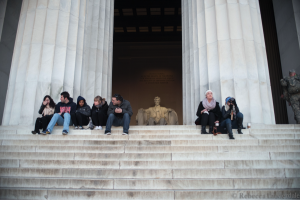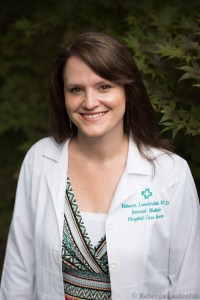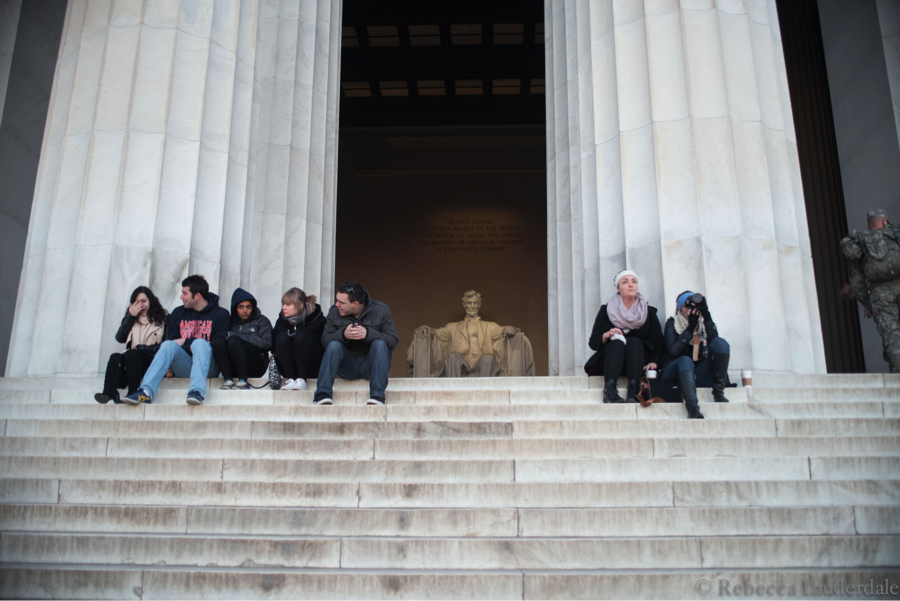by Dr. Rebecca Lauderdale
I’ve had an obsession with stories lately. Specifically, the way stories we tell about ourselves and others can either limit us or spur us to grow and transform – as people and organizations. Truthfully, it’s much easier to talk about this with people who aren’t in healthcare professions. We in medicine, including myself, can be particularly reluctant to adopt “soft” techniques for improving our practices and systems of care. We want evidence-based, proven methods. I admit there was a time in the not-so-distant past when I would have balked at the idea of using stories to improve healthcare delivery. I have become increasingly convinced, however, that there is strong evidence that stories are foundational and that the type of stories we tell can make or break healthcare – from the individual practice of a provider to the function of a hospital or health system.
It was within this mental context that I walked in to Peter Pronovost’s plenary presentation at SHM 2015, titled “Taking Quality to the Next Level, The Journey from Ending One Harm to Ending all Harms.” When he began to speak about quality and patient safety from the perspective of the stories we physicians tell, I was surprised and relieved. He said that physicians must change the stories we tell in order to change how we behave. One of the many examples he used was the radical reduction in central line infections at Johns Hopkins from 12 to 1 per 1,000 central line days in the span of nine years that would not have been achieved if physicians had continued telling the story that central line infections are inevitable and it’s a waste of time to try to prevent them.
I read Carol Dweck’s 2007 book, Mindset, several months before I attended SHM 2015, and it had already set off a cascade of realizations about my own assumptions – stories I tell, often unconsciously, about my own limitations for change (personal and organizational), about the capacity for transformational growth in my practice group, and in the larger health system. These types of assumptions are, of course, not limited to my medical life. They are present in the way I see the whole world. Dweck’s well supported thesis is that personal and organizational traits and skill sets are, to a large degree, changeable. Whether or not growth or change occurs depends on whether there is a belief that the change can occur.

I visited Abe while in DC for the conference. Where would we be if he hadn’t developed a growth mindset?
The good news from Dweck’s studies is that, though a fixed mindset (as she terms the tendency to view abilities and traits as unchangeable) seriously limits growth potential, people can be taught a growth mindset. In the studies cited in Mindset, groups could be coached into a growth mindset (even if they previously had a fixed view) just by introducing a task or skill set differently. The study investigators would tell participants that the skills to be tested were “developed through practice and that the task would give them an opportunity to cultivate these skills,” while the group to be coached into a fixed mindset would be told that the task “measured their basic, underlying capabilities.” The performance of the groups was often wildly different, with the growth mindset groups being collaborative, innovative, and learning from mistakes, while the fixed mindset groups were hesitant to take risks, admit mistakes, and sometimes even tyrannical.
I have found that in my own practice, I need to work on my mindset in two broad areas. First, my personal skills and capacities. Until recently, I believed that my basic leadership style was fixed. This wasn’t something I had ever said aloud or formulated as a well-articulated idea, but it was there in my brain and my behaviors. I believed that I could learn more about things like hospital politics, strategic planning, etc., but not that my often passive and sometimes even apologetic leadership presence (particularly around senior partners or executives) would or could ever be much different. That’s just part of who I am, thought.
It has helped a great deal to attuned to listening for stories of others who have been able to effect transformational change in their leadership, their relationships and their organizations. If I know that I can improve and change, I will be less critical of myself, more open to seeing and correcting deficiencies. The value I bring to my work and relationships will be greater, because I will be more likely to innovate and less afraid of mistakes because I don’t believe that my current skill set reflects my value as a person.
I also had (and often still have) a fixed mindset about others – my peers, my practice group, and the hospital system. In the studies mentioned above, only small interventions were needed to alter someone’s beliefs about the potential to solve complex problems and their actual ability to solve it. But that also works in reverse. Cultivating a growth mindset is simple, but not easy. It requires consistent practice to keep from sliding back into a fixed mindset, especially when surrounded by others with a fixed mindset. The biggest benefit of attending the national SHM conference was just in being around others who believe we can make a difference, and hearing their stories.
Help us learn from each other. Do you have a story of growth? Something you, your partners, or your health system achieved through having a growth mindset? Please share – we need these stories to develop into the evidence-based practice of storytelling in healthcare.
 Rebecca Lauderdale, MD, is a board-certified internist, hospitalist, mom, wife, daughter and friend. She practices hospital medicine in Hattiesburg, Mississippi, and is an assistant director of a 20+ provider hospitalist group practicing at Forrest General Hospital, a 500 bed regional referral hospital. She completed medical school and residency at the University of Mississippi Medical Center in Jackson, MS, and believes in the truth of the William Faulkner quote that “to understand the world, one must first understand a place like Mississippi.” She is interested in personal and organizational transformation and in creating health systems that are high in patient quality, but also rich, sustainable, and fulfilling for healthcare workers.
Rebecca Lauderdale, MD, is a board-certified internist, hospitalist, mom, wife, daughter and friend. She practices hospital medicine in Hattiesburg, Mississippi, and is an assistant director of a 20+ provider hospitalist group practicing at Forrest General Hospital, a 500 bed regional referral hospital. She completed medical school and residency at the University of Mississippi Medical Center in Jackson, MS, and believes in the truth of the William Faulkner quote that “to understand the world, one must first understand a place like Mississippi.” She is interested in personal and organizational transformation and in creating health systems that are high in patient quality, but also rich, sustainable, and fulfilling for healthcare workers.




Leave A Comment